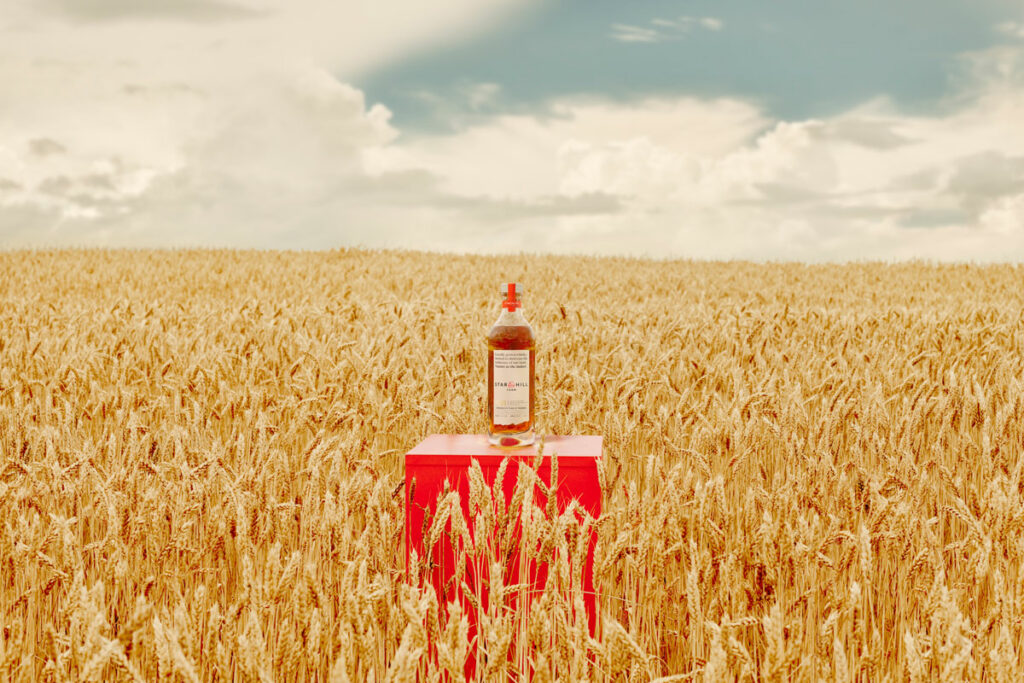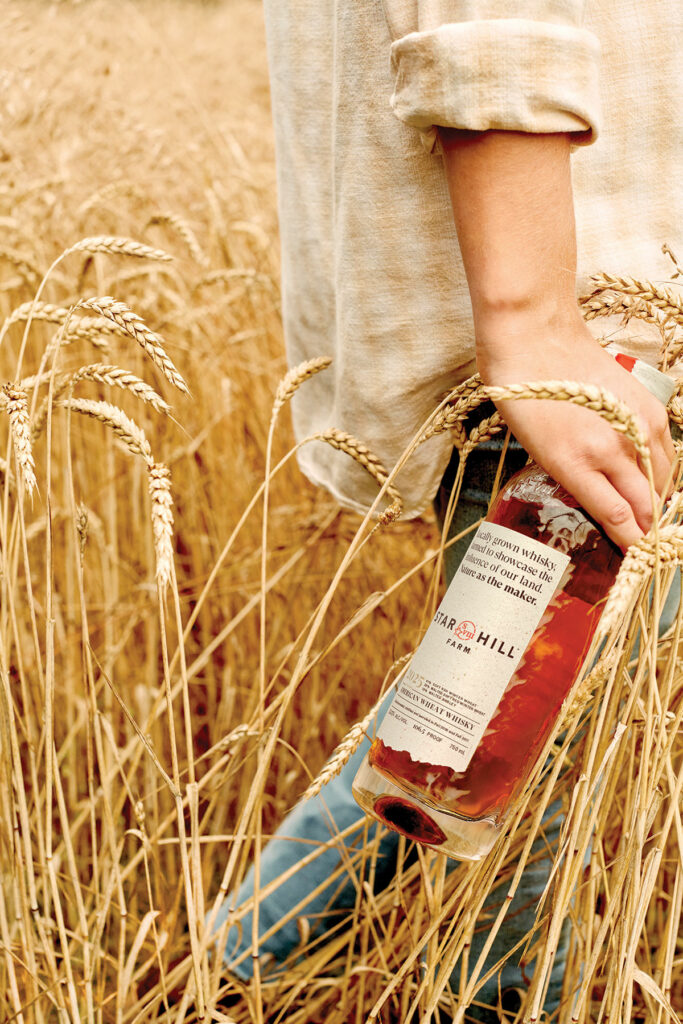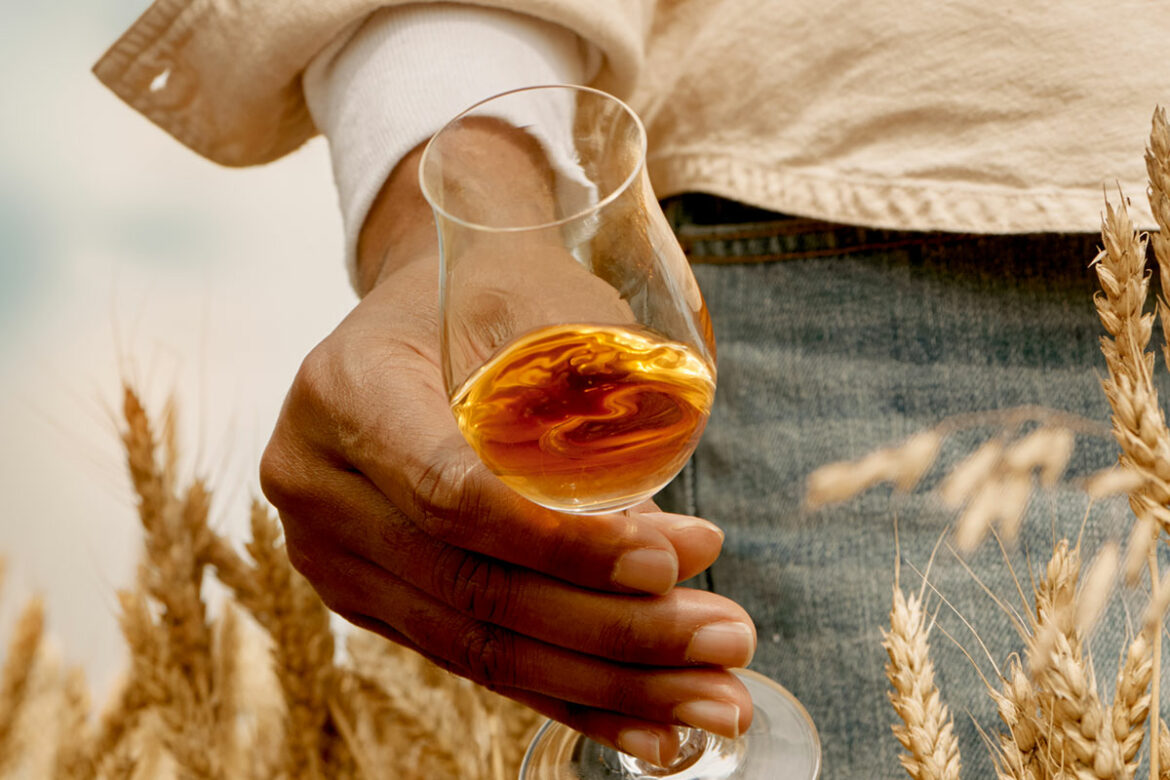The legendary Kentucky distillery digs deep into its history and embraces regenerative farming for its first non-bourbon spirit, Star Hill Farm Whisky.
If you are travelling the hills of Kentucky, and you are lucky, you may meet Star. Friendly, with a distinctive beard and unkempt hair so thick and wild you cannot see his eyes, nor he yours, Star is an Italian water dog. He is the truffle-hunter extraordinaire at Star Hill Farm, the 1,100-acre homeplace to the Maker’s Mark Distillery, which keeps a steady flow of tours and is a necessary stop on the state’s Bourbon Trail. A place to visit, yes, Star Hill Farm is also a place of work, study, ingenuity, and agriculture, where for generations the Samuels family has made, barreled, aged, and bottled Maker’s Mark, the award-winning and—thanks to its iconic red wax seal—easily identifiable bourbon. With the help of everyone at Star Hill Farm, and under the watchful eye of Star, that bourbon will now have some very distinguished company.
For the first time in its 70-year history, Maker’s Mark will introduce something other than bourbon: Star Hill Farm Whisky, the distillery’s first new mashbill and first wheat whisky, celebrating the flavor that specific grain varietals can impart when expertly blended, carefully aged and grown with regenerative farming practices.


Wheat has been a prized part of Maker’s mashbill since way back in 1953, when the first batch of what would become Maker’s was crafted by T. William “Bill” Samuels Sr., and his wife, Margie Samuels. When they burned the 170-year-old family recipe—along with conventions of the time—to create a new, balanced bourbon “so delicious, you’d want to share it with friends,” they needed to know they were working with the very best wheat, so Margie got to work baking bread, testing different varieties the real way: tasting them. Many loaves later, soft red winter wheat was the winner.
Flavor—over efficiency, over profit, over everything—is something you hear again and again at Star Hill Farm. Seventy years after that first batch, when they embarked on a new journey to better understand nature’s impact on its whisky, much of the same process was undertaken by Maker’s Mark, with one key difference: Removing corn from the mashbill allowed the wheat to shine in an entirely new way.
The result is a compelling blend of seven- and eight-year whiskies that their master distiller, Dr. Blake Layfield, describes as a full sensory experience, with notes of buttery caramel, golden raisins, and gingerbread on the nose; the palate soft and bright with notes of honeyed toffee, chocolate-covered cherries, and apple pie spice.
While it ultimately comes back to flavor, regenerative farming—a turn away from yield and towards soil health, the environment, and nature’s processes—has added new dimensions to Maker’s Mark, the first and only bourbon distillery in Kentucky to achieve B Corp Certification. The new Star Hill Farm Whisky is as much about blending a complex and balanced whisky—the inaugural release is crafted from two mashbills: one with 70% soft red winter wheat and 30% malted barley, and the other with 100% malted soft red winter wheat—as it is creating conversations about terroir, agricultural ecosystems, and sustainability.
In some ways nature has always dictated the work at Star Hill Farm—after all, Margie and Bill Samuels Sr. chose the land in Loretto, Kentucky, for Maker’s Mark because of its premium water source, natural watershed, and surrounding limestone shelf that “creates a richer, deeper, and more complex bourbon,” according to Layfield. But regenerative farming has countless benefits beyond good-tasting whisky.

And this is where Star, our favorite little truffle hunter, comes in. No, you will not taste truffles in Star Hill Farm Whisky, but he’s there. The truffles he finds: they become preserves, used in the farm’s cocktail program, or the chef works them into the food they serve at Star Hill Farm’s restaurant. What’s not eaten is composted and goes back into the soil where Star hunts, and the wheat grows, and the water runs through.
“Maker’s Mark came to soil health through flavor,” says Salar Shemirani, CEO of Regenified, a company that verifies and certifies regenerative agriculture. Star Hill Farm is all in: Maker’s Mark is the first distillery to achieve Regenified Certification, a reflection of the brand’s dedication to local sourcing and sustainable agriculture practices. Beyond the health of the land that makes its bourbon, the potential impact is big. “We’re talking about bird species coming back,” says Shemirani.
Their regenerative outlook hits even the barrels, constructed of American White Oak, the oak species critical to make the barrels in which bourbon is aged. Fantastically important to American forests’ diversity and management, Maker’s Mark and the University of Kentucky are working to map the genome of the tree to help preserve it for future generations (fun fact: the elevation of a single tree can influence the flavor profile a barrel will deliver).
Partnering with Regenified and Understanding Ag, which provides education and mentorship to maintain healthy farm ecosystems, their goal is not just better whisky, but to cultivate whisky that betters the world; and they have big plans to transition one million acres of conventional farmland to regenerative, beginning in the greater regions of New York, Kentucky, and London over the next three years.
Thinking big and beyond the business seems to be working. Star Hill Farm Whisky is the first to carry an Estate Whisky certification, a certification from a group, newly established by the University of Kentucky, to highlight the advantages of local sourcing and sustainable production, which from Rob Samuels’ perspective—the founders’ grandson who helms the business—“Creates an opportunity to share what our team has learned on our regenerative farming journey, learn from others and scale impact, to ultimately build a more sustainable future for our industry, our people and planet.”
What this all boils down to in Star Hill Farm Whisky is a flavor profile that’s not better in spite of these efforts, but because of them. It’s approachable but with depth, and leaves you with a rounded finish with notes toasted pecans and soft cinnamon, as Layfield puts it. There’s a taste of quality, of history, and of care, which has come to embrace not just flavor, but soil, stewardship, and an entire way of life.
You can meet Star in every bottle. And you’ll feel lucky.



